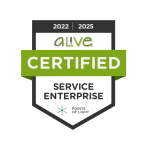VBSPCA Main Shelter Hours
3040 Holland Rd.
Virginia Beach, VA 23453
Monday: 1:00 pm – 6:00pm
Tuesday: 1:00pm – 6:00pm
Wednesday: Closed
Thursday: 1:00pm – 6:00pm
Friday: 1:00pm – 6:00pm
Saturday: 1:00pm – 6:00pm
Sunday: 1:00pm – 6:00pm
*Receiving hours: 11:00am – 5:00pm (by appointment only)
Phone: (757) 427-0070
Email: info@vbspca.com
VBSPCA Clinic Hours
3040 Holland Rd.
Virginia Beach, VA 23453
Monday: 9:00am – 5:00pm
Tuesday: 9:00am – 5:00pm
Wednesday: 9:00am – 5:00pm
Thursday: 9:00am – 5:00pm
Friday: 9:00am – 5:00pm
Saturday: 9:00am – 1:00pm
Sunday: Closed
Surgery Drop-Off: 8:00am – 8:45am
Phone: (757) 427-0071
Fax: (757) 563-2368
Email: clinic@vbspca.com
Upcoming Vaccine Clinics
January 31 – 9am-12pm
February 4 – 11am-2:30pm
February 7 – 9am-12pm
February 11 – 11am-2:30pm
February 14 – 9am-12pm
February 18- 11am-2:30pm
February 21 – 9am-12pm
February 25- 11am-2:30pm
February 28 – 9am-12pm
*all above clinics are held at the VBSPCA Clinic at 3040 Holland Road
The Virginia Beach SPCA is a 501(c)(3) non-profit organization. EIN:54-6061532. Contact us at info@vbspca.com.
Copyright © 2026 · All Rights Reserved · Virginia Beach SPCA
Nonprofit Website by GivingPress · RSS Feed · Log in




Foster Home Responsibilities
Foster Home Responsibilities
All foster pets should be kept inside. This protects the animals from the elements and other dangers outside. Furthermore, the primary responsibility of the foster home is to socialize the animal. The animals should have as much human contact as possible. This will increase their chances for adoption.
The Virginia Beach SPCA provides fosters with food, cat litter, and other items needed to care for the animal(s) you welcome into your home. If medical problems develop, the foster parent should contact the VBSPCA immediately and arrange to bring the animal to us for examination. Any visits to your own veterinarian are your sole financial responsibility. VBSPCA staff MUST clear all medical treatments on VBSPCA animals, even if your personal vet has examined the animal. All resident animals must be up to date on basic vaccines before a foster animal can be placed into your home. A home inspection may be required before a new volunteer may foster an animal. This is to protect the animal by insuring adequate standards of care.
Isolation
Periodically, outbreaks of serious diseases will spread throughout the country’s animal populations. Shelters are often the first to notice increases in animal illness, because we receive so many unvaccinated and stray animals. It is ESSENTIAL for your pets’ health and protection that you follow isolation guidelines. Because most of the animals needing foster care have unknown histories, you must keep them isolated from your own pets for at LEAST one week. To control the spread of disease, please keep foster animals confined to a single room or bathroom.
Confinement
Many foster families feel guilty about confining their temporary guests to a small area. Please understand that this is in the animals’ best interest. Cats in particular will need some time to de-stress after entering their new environment. If you give them the run of the house, they will hide and you may not be able to find them or get them to come out of hiding. This can be serious if you have a nursing mother, who may hide and leave her babies behind. Other mothers may attempt to move their babies and may put them in a dangerous place. The smaller the area, the easier it is to find the animals. It is also easier to clean and pet proof a small area. Potty training is accomplished much faster in a confined space.
Time Commitment
The shelter environment can be very stressful on animals of all ages. It can be equally, if not more, stressful to be repeatedly moved from one home to another. Please consider the amount of time you have available before fostering. If you cannot commit to an animal for the entire foster period, please wait until you have more time available. Please recognize that the amount of time an animal needs depends on its particular situation. Sickness or poor weight gain may extend fostering by a week or more. Are you interested in becoming a foster parent? For more information, contact our foster manager at foster@vbspca.com.
Search
Ways to Give
Annual Sponsors
To view our Donor Privacy Policy, click here.